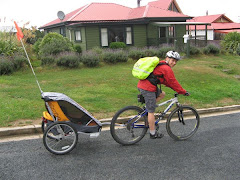Submission to the Tertiary Education Strategy
Thank you for the opportunity to contribute to the Tertiary Education Strategy. This is a fantastic opportunity for New Zealand to deliver on the United Nations Decade of Education for Sustainable Development (2005-2014).
Following are our comments in relation to the goals of the UN Decade.
Key points on the Vision
1.2
We need our current and future workforce to act sustainably. Therefore they need the skills to do this. e.g. 'raise the skills and knowledge of the current and future workforce to meet labour demand, economic, societal and environmental needs.' The Tertiary Education sector must be directed to provide the learning to think and act for a sustainable future.
It is great to see a mention of sustainability in the vision. It is important that this is worded to show the interconnectedness of our economic, social and environmental systems. "...respond to the interconnected needs of our economic, social and environmental systems."
Sustainability research is interdisciplinary research. The Performance-Based Research Fund with it's discipline based panel structure must be reviewed so as to provide for essential interdisciplinary research such as sustainability.
2.1 Priorities
It must be a priority to develop people who have the ability to take a systems thinking approach to all that they do and understand the interconnectedness of our socio-economic systems. Students and our future workforce must understand that we live in a closed system with finite resources and we must therefore operate in a way that our species will be sustained by these resources for many generations to come. It must also be a priority to develop people who can consider others on a world wide scale. It must also be a priority to develop people who can participant and act in the democratic process in the New Zealand system and many other systems globally.
To sum this up it must be a priority for the government to see tertiary education providers develop people who can think and act for a sustainable future.
2.2 How priorities will be achieved
This priority can be achieved by encouraging/expecting providers to integrate teaching and learning for a sustainable future by providing: learning in systems, critical and creative thinking; an understanding of the interconnectedness of our living systems; understanding of ethics across time and space; the motivation and ability to act for a sustainable future.
2.2.2
It is great to see that 'encourage collaboration and shared resources' as part of improving sector performance. Through Open Educational Resource we can expand this further to contribute to the provision of education world wide, enhancing New Zealand's reputation for high quality education. The use of quality Open Educational Resource (OER) will encourage those who have the ability to pay for facilitated and/or face to face education in New Zealand and to be acknowledged through certification for what they have achieved to do so. As well as providing education for those who do not have the same privilege and enhance international links.
3.1 Expectations of Providers
The government must expect tertiary education providers to educate for sustainability. We can no longer afford to ignore the interconnectedness of our living systems. Tomorrows leaders must be able to move our country forward with a systems thinking, collaborative, action approach to addressing the decline of the health and abundance of the natural resources in which we rely.
All tertiary education providers must provide education for sustainability for all their students. All education must have real world application and our future 'real world' must be a sustainable one.
3.3 Monitoring
The government must not only monitor the 'contribution that tertiary education makes to New Zealand's economy and society,' but must monitor the contribution that tertiary education makes to New Zealand's integrated economic, society and environment systems.
Recommendations:
1. Add the integration of Education for Sustainability as an expectation of tertiary education providers.
2. The ability to act for a sustainable future must be an explicit core capability, such as numeracy and literacy. Eco-literacy is an essential skill for all for New Zealand's future.
3. Interdisciplinary study and research must be supported in order to gain strong, worthwhile sustainability research.
Monday, October 19, 2009
Subscribe to:
Comments (Atom)


